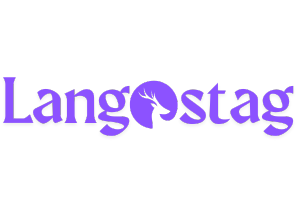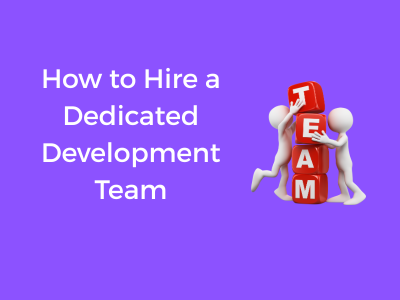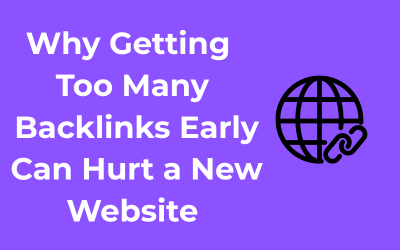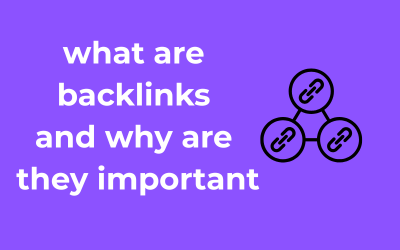When you think about a dedicated development team, imagine a group of tech-savvy experts working full-time on your project, laser-focused on making your vision a reality. They operate like an extension of your company but come with the added perks of flexibility, diverse skill sets, and often, cost efficiencies. Let’s break it down to make sense of their role:
What Does “Dedicated” Mean in This Context?
The “dedicated” part isn’t just lip service. A dedicated development team is committed solely to your project during the agreed period. Unlike freelancers juggling multiple clients or in-house teams who might be tied up with other responsibilities, this team is all-in, giving their undivided attention to your goals.
Well, with a team, you get a broad spectrum of expertise under one roof. Need a front-end developer, a back-end whiz, a UI/UX designer, and a project manager? A dedicated team has got it all. This setup works wonders for businesses dealing with complex projects requiring diverse talents to collaborate seamlessly.
The Team’s Structure
To provide perspective, here’s what a typical dedicated development team might look like:
- Project Manager: They ensure everything is running smoothly and deadlines are met.
- Developers: From front-end to back-end maestros, developers handle the core building of your software or app.
- QA/Testers: These eagle-eyed professionals eliminate bugs and ensure quality before anything goes live.
- Designers: Making your platform user-friendly and visually appealing is their priority.
- DevOps Experts: They handle the deployment process and keep systems running efficiently.
How They Differ From Freelancers or In-House Teams

Think of freelancers as lone wolves. While they have their merits, like affordability, they lack the collaborative strength of a team. On the other hand, in-house teams offer proximity but can quickly become resource-intensive with salaries, benefits, and equipment costs piling up.
A dedicated development team strikes a balance. You get the cohesion of an in-house team and the independence of freelancers without the heavy upkeep — you just pay for the service and lay out your project’s objectives.
Key Benefits Beyond Traditional Hiring
Hiring a dedicated development team is a game-changer in the world of software development and business growth. While traditional hiring methods have their own merits, there’s so much more you can unlock with this approach. Let’s dive into the key benefits that often tip the scales in favor of opting for a dedicated team. Spoiler alert — it’s not just about saving money (though that’s a nice bonus too).
1. Access to a Wide Pool of Talent
Perhaps one of the most overwhelming advantages is the access you get to global talent. Instead of being limited to finding developers in your local area, you can collaborate with top-notch professionals worldwide, all expertly curated by your chosen provider. This not only ensures you work with the best but also broadens the perspectives and ideas brought to your project.
2. Faster Time to Market
Time is money in today’s competitive markets. Hiring a dedicated development team accelerates your project timelines. These teams are already equipped, experienced, and ready to dive in. No time wasted on onboarding for months or hand-holding. They hit the ground running, ensuring your product reaches customers faster.
3. Flexibility & Scalability
One of the standout features of working with a dedicated team is the flexibility it affords. Need to scale up or down quickly? This model allows you to add or remove team members based on your current requirements without the time-consuming traditional hiring headaches. Perfect for businesses with evolving needs or fluctuating project sizes.
4. Cost Efficiency Without Compromising Quality
Let’s not pretend that budget isn’t a priority. By choosing a dedicated team, you often save on expenses like employee benefits, office space, and onboarding. Plus, outsourcing to regions with competitive rates (without a drop in expertise) can maximize value for your budget. The best part? All this while maintaining high standards in development quality.
5. Focus on Core Business Functions
Managing an in-house team can involve a lot of overhead — think HR, payroll, and more. A dedicated team lets you offload those managerial tasks, giving you the breathing room to focus completely on your core business strategies, product, or services. It’s like giving yourself a mental upgrade to focus on what truly matters.
6. Established Processes & Expertise
If you’ve ever tried to build a team from scratch, you know how painstakingly long it can take to establish workflows, foster team collaboration, and achieve results. A dedicated development team comes with tried-and-true processes already in place, eliminating the trial-and-error phase. They’ve worked together (or know how to sync up quickly), ensuring smooth delivery from day one.
7. Round-the-Clock Progress
Working with a team from a different time zone? That might sound daunting at first, but it can actually work in your favor. With the right communication structures, round-the-clock progress becomes a reality. While you rest, your team carries on. Waking up to updates is seriously a productivity boost.
Why Settle for Traditional? Think Big
By harnessing a dedicated development team, you don’t just develop extraordinary software — you gain a trusted partner. Someone equipped to share your vision, tackle challenges, and help you succeed. So, give yourself that edge over the competition. Step beyond conventional paths and embrace the perks of going dedicated.
Identifying When It’s Right for Your Business Needs

Is your business growth strategy making you wonder whether a dedicated development team is the right fit for your needs? Don’t worry—you’re not alone! Deciding when to bring in professional technical power is a common challenge among businesses. Let’s dive into the telltale signs and situations where hiring a dedicated development team makes the most sense.
1. Your In-House Team is Overloaded
If your existing team is stretched thin, working long hours, and feeling overwhelmed by their workload, it might be time to add reinforcement. Overloading your staff could lead to burnout, decreased productivity, and even errors. Hiring a dedicated development team can lighten the load so your in-house team can focus on their strengths and perform at their best.
2. You’re Launching a New Project
Starting an exciting project but don’t have the right skills in-house? Good news! This is an ideal time to hire a dedicated team. Building a new app, website, or software often requires specific expertise. Not all companies have specialists for every platform, tool, or language, and that’s where a flexible, skilled team can step in.
3. Cost Management is Key
Hiring full-time employees—with salaries, benefits, and bonuses—can be expensive. If you’re working on a short-term or seasonal project, a dedicated development team lets you allocate resources much more effectively. Think of it as “pay-for-what-you-need” expertise without the long-term financial commitment.
4. You Need to Scale Quickly
So, your business is growing fast. Congratulations! But rapid growth means increased demands. If you’re under pressure to scale your IT or development team quickly, a dedicated team offers a ready-made solution. These teams are adaptable and can jump right in, helping you maintain momentum without hitting roadblocks.
5. Specialized Knowledge is Missing In-House
No one expects your business to be a jack-of-all-trades for every technical requirement. Need AI integration, blockchain solutions, or augmented reality functionality? A dedicated development team often possesses the niche expertise to handle these cutting-edge solutions efficiently, helping your business stay competitive in the market.
6. Time is of the Essence
Deadlines can make or break projects. If your in-house team doesn’t have the bandwidth or expertise to deliver on time, outsourcing a dedicated team can keep your project on track. They’re skilled at jumping into projects with focused, efficient efforts—saving you precious time.
7. Long-Term Partnerships Are on the Horizon
Sometimes, businesses need more than a short-term boost. A dedicated development team can seamlessly integrate with your organization long-term, becoming an extension of your core team. They grow with your business, deeply understand your goals, and become invaluable partners.
8. Flexibility Matters
Not sure what your future requirements will look like? A dedicated development team offers flexibility. While traditional hiring locks you into rigid contracts, these teams can scale up or down based on your evolving needs, ensuring you’re always prepared to tackle new challenges.
Steps to Evaluate and Select the Best Fit
When it comes to finding the perfect dedicated development team, the process can feel a bit overwhelming. But don’t stress—breaking it into clear, actionable steps makes everything more manageable. In fact, by following these steps, you’ll not only be confident in your choice but also set a strong foundation for success. Let’s dig in!
1. Define Your Project Goals and Requirements
Before you even begin looking for a team, start with clarity. Take time to outline your project objectives, scope, and must-have features. Are you looking for long-term support or a one-off project? Do you need expertise in a particular technology or framework? Write down your priorities so you can share them with potential teams later.
2. Research, Research, Research!
This step might sound tedious, but trust me—it’s worth it. Use platforms like Clutch.co, Upwork, or LinkedIn to browse reputable development teams. Check online reviews, client testimonials, and case studies to get a sense of the team’s experience and reliability.
3. Check Their Portfolio
Nothing tells you more about a team than their past work. Reviewing a team’s portfolio will give you a sense of their capabilities and whether their style matches the vision for your project. Look out for projects similar to yours to ensure their expertise aligns with your needs.
4. Assess Communication Skills
A top-notch team isn’t just about coding—they should also excel in communication. During initial conversations, pay attention to how quickly and effectively they respond to your queries. A team that asks thoughtful questions and demonstrates understanding is one that you’re likely to work well with!
5. Test Technical Expertise (If Possible)
If you’re hiring for specialized tasks, a mini-project or technical test can be an eye-opener. Even if you’re not a “techy” yourself, setting up a paid trial task is an excellent way to evaluate their skill level, attention to detail, and ability to meet deadlines.
6. Discuss Their Development Approach
Ask about their development methodologies—not every team uses the same approach, and that’s okay! Whether they follow agile, waterfall, or scrum, ensure their style complements your work culture. A team that’s flexible and adaptive is always a bonus.
7. Dive Into Pricing & Contracts
Money matters, but don’t let it be the only focus. Request a detailed breakdown of their payment structure (hourly, monthly, or project-based). Keep an eye out for hidden costs and ensure the contractual terms are crystal clear—especially regarding timelines, deliverables, and support post-project.
8. Evaluate Long-Term Compatibility
Think beyond the immediate project. Could this team scale alongside your business? Do they have the capacity and willingness to build a long-term partnership? Choosing a proactive team that can grow with your needs is often a smarter bet for your business.
9. Conduct Team Interviews
Before signing on the dotted line, take time to meet the team directly via video calls or in-person meetings. This phase is great for assessing not just their skills but their personality and work ethic. Bonus: it’ll help you build trust with your new collaborators before you start the big work.
10. References Are a Must
Finally, ask for client references. A quick phone call or email with a couple of their past or current clients will give you an unfiltered understanding of what it’s like to work with them. Don’t skip this—it could save a lot of headaches down the road!
Essential Skills and Expertise to Look For
So, you’re all set to bring on a stellar dedicated development team, but hold on a second – how do you know if they’re the rockstars you’ve been looking for? What makes a dedicated development team truly stand out from the crowd? Relax, we’ve got you covered! Let’s dive into the essential skills and expertise you should be scouting for when hiring the team.
1. Technical Expertise – The Backbone of Great Development
First things first, your team needs to have the technical chops to get the job done. This might sound pretty obvious, but it’s not just about knowing the basics. Look for a team that has deep experience in the technologies, tools, and frameworks relevant to your project. Here’s an idea of what you might want to verify:
- Programming Languages: Do they know Python, JavaScript, Ruby, or whatever language is pivotal for your project?
- Frameworks: Are they proficient in React, Angular, or Django? Match this with your project needs.
- Database Familiarity: Can your potential team work with SQL, NoSQL, or cloud-based databases?
Don’t shy away from asking specific questions about their experience with certain technologies. You’re looking for confidence, not just a nice resume.
2. Specialized Skills for Specific Needs
Not all development teams are one-size-fits-all. Depending on your project, you might need specialized skills. For instance:
- If you’re diving into mobile app development, iOS (Swift) and Android (Kotlin) expertise could be critical.
- Looking to build something revolutionary in AI? Their hands-on experience with libraries like TensorFlow or PyTorch matters.
- E-commerce platforms? Knowledge in Shopify, Magento, or WooCommerce should be on your checklist.
Your project’s unique needs should guide you when digging into the team’s expertise.
3. Problem-Solving Ability
Here’s where things get a little deeper – it’s not enough for your team to just write code. They should be able to think critically, resolve challenges, and stumble upon solutions efficiently. Whether it’s debugging a tough issue, optimizing performance, or designing scalable platforms, a knack for problem-solving is non-negotiable.
4. Strong Communication Skills
Hold up – communication? Yes, absolutely. Even in a world dominated by code, your developers need to communicate clearly. They should effectively convey their ideas, keep you updated on progress, and take in your feedback seamlessly. A gap in communication could cause delays, misunderstandings, or missed expectations. You don’t want that.
5. Understanding of Agile & Collaborative Workflows
Today’s modern development teams often swear by Agile methodology, breaking projects into sprints and delivering iterations quickly. Your dedicated team should know how to work collaboratively in such an environment. Tools like Jira, Trello, or Slack should be their second nature.
6. Business Acumen
Last but definitely not least, a great development team is one that understands your business goals. They don’t just churn out code – they take the time to absorb your objectives, ensuring their technical solutions align with your vision. This mindset transforms developers into true partners in success.
Questions You Must Ask Before Making the Final Decision
So, you’re almost there! You’ve done your research, shortlisted the development teams that seem like a great match, and you’re ready to take the next step. But hold on a second—before you seal the deal, there are a few crucial questions you need to ask. Asking the right questions upfront is like having a flashlight in a dark tunnel—it’ll give you clarity and help you avoid stumbling later on. Let’s walk through the top questions you must ask to ensure your final decision is the right one!
1. What is Their Approach to Communication?
In any collaborative project, communication is the backbone. You need to understand how the team communicates, how often they provide updates, and which tools they use. Ask them questions such as:
- What communication channels do you prefer (Slack, Zoom, emails)?
- How do you handle time zone differences?
- Will you assign a project manager or point of contact for seamless coordination?
A good team will already have a well-defined communication plan and processes that make it easy for everyone to stay in sync.
2. Can You Share Examples of Similar Projects You’ve Worked On?
Let’s be real—experience matters. Asking for case studies or portfolios allows you to gauge their expertise in projects similar to yours. Follow up with questions like:
- What challenges did you face in this project, and how did you solve them?
- What was the timeline and outcome of the project?
- Have you worked with businesses in my industry before?
This gives you deeper insight into their capabilities and adaptability to tackle complex scenarios.
3. How Do You Handle Changes or Unforeseen Issues During Development?
No project goes entirely as planned. That’s why you need a team that can pivot gracefully when surprises arise. Ask about their change management processes:
- How do you address scope changes?
- Do you charge extra for mid-project adjustments?
- What is your approach to managing risks and ensuring quality?
A team with robust processes in place will have no trouble explaining how they handle changes or challenges along the way.
4. What Does Your Project Lifecycle Look Like?
Understanding their development process ensures you’re both on the same page. Ask them:
- What stages do you follow (e.g., discovery, sprint planning, testing, deployment)?
- How do you ensure deadlines are met?
- What methodologies (e.g., Agile, Scrum) do you use, and why?
The answers will provide a clear picture of how structured and organized their workflows are.
5. Can You Explain Your Pricing and Billing Model?
Transparency around costs can save you from future headaches. Get clarity on billing practices by asking:
- Is this a fixed-price project or time-and-materials-based?
- What is included in the pricing (e.g., meetings, tools, post-launch support)?
- What is your approach in case of budget overruns?
Always ensure there’s a written agreement that avoids any room for ambiguity.
6. What is Your Post-Development Support Policy?
A successful project doesn’t stop at deployment. Support and maintenance are equally crucial. Drill deeper by asking:
- Do you offer post-launch support, and for how long?
- How do you handle bug fixes and updates?
- Is training for my in-house team included?
The right partner will have a solid plan to ensure your product thrives even after the launch.
Common Mistakes to Avoid During the Hiring Process
Hiring a dedicated development team can be a game-changer for your business. It’s exciting, isn’t it? But hold on—rushing into it without the right approach can lead to costly mistakes. Let’s dive into some common missteps and, more importantly, how you can steer clear of them to make the right decision.
1. Ignoring Technical Expertise and Specialization
It’s tempting to hire a team that “seems good at everything,” but be cautious of a jack-of-all-trades approach. Not all development teams excel in every area. If you need a team for fintech, for example, they must have experience (and success stories) in building secure, high-performance systems in that domain. Ask for a portfolio of similar past projects. Make sure their expertise aligns with your specific project needs.
2. Focusing Solely on Cost
Sure, budgets are important. But hiring the cheapest team may end up costing you more in the long run. Low-ball bids can sometimes mean poor quality, delays, or even abandoned projects. Instead, balance cost with quality. Look for teams that offer good value for money while showcasing excellent skills, communication, and commitment.
3. Overlooking Soft Skills
Technical prowess is vital, but don’t forget about the **human side** of hiring. A lack of good communication, cultural alignment, or teamwork can bring even the most skilled team to a standstill. Who wants to work with a group that can’t keep you in the loop or collaborate effectively? Test their communication style during interviews. Are they responsive, easy to connect with, and professional? Watch how they handle feedback during initial discussions.
4. Forgetting to Define Clear Goals and Expectations
Imagine hiring a team without a clear roadmap—it’s like starting a road trip without knowing your destination. Many businesses fail to set specific goals, milestones, and deliverable timelines, leading to confusion and hiccups later on. Before hiring, outline your project requirements, timelines, and success metrics.
5. Skipping Background Checks
It’s surprising how often businesses hire based on word-of-mouth or surface-level impressions without digging deeper. A bad hire can derail your entire project. Investigate the team thoroughly. Request references and contact past clients. Look up online reviews or testimonials, and don’t hesitate to ask hard questions about their past performance.
6. Rushing Through the Process
We get it—you need your project done yesterday. But haste makes waste. Hiring too quickly often results in choosing the wrong team and poorly structured contracts. Take your time to find the right fit—your project deserves it. Evaluate multiple options, conduct proper interviews, and ensure all stakeholders are aligned before finalizing any contract.
7. Not Considering Long-Term Collaboration
Sometimes businesses make decisions with a **short-term mindset** and forget to consider whether this team can support future scaling or provide ongoing maintenance. A great team grows with you. Ask about post-launch support and how they handle long-term partnerships. You want a team that’s in it for the long haul, not just a single sprint.













